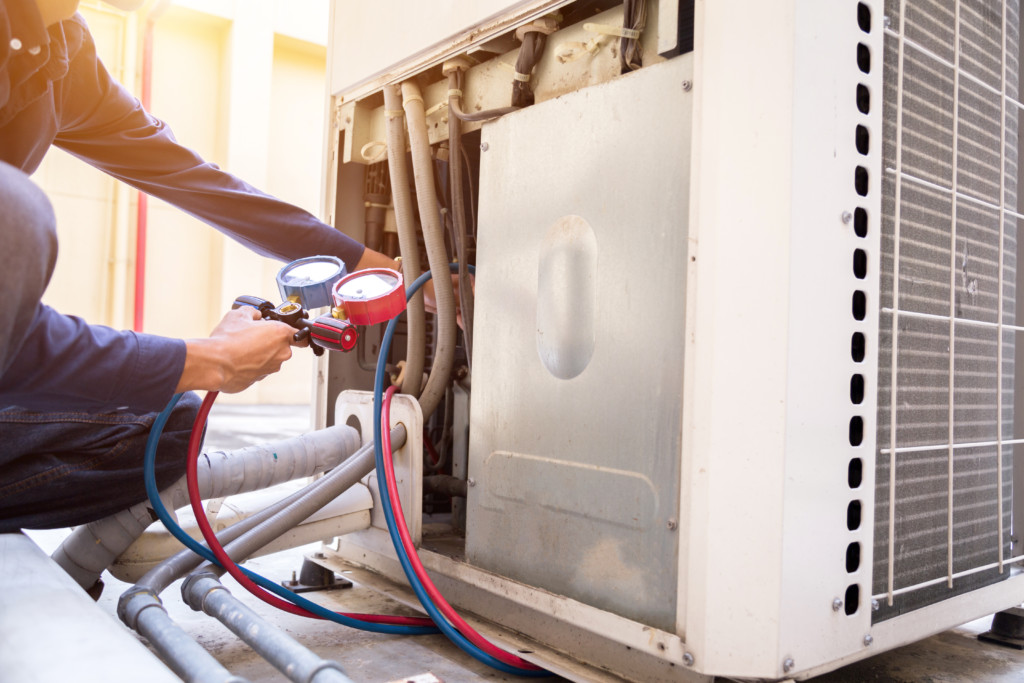You are viewing our site as an Agent, Switch Your View:
Agent | Broker Reset Filters to Default Back to ListThe Most Important Repairs Sellers Should Make for Buyers
September 12 2021
Are you helping guide sellers through our current seller's market? Share this article with them to help them understand the pros and cons of making home repairs before listing:
Thinking about getting your house in shape to list for sale before the super seller's market fades away? If you've owned your home for five years or more, or if you've been putting off maintenance tasks, you may have a great deal to figure out first. Maybe your home could use some big ticket upgrades, or perhaps the roof is at the end of its life. Repairs can certainly boost home salability, but not all will net sellers a worthwhile return on the investment or help them to sell quickly. To determine the most important repairs sellers should make for buyers, it comes down to two main components: seller goals and local market conditions.
Should Sellers Make Major Home Repairs?
When it comes to performing any major remodeling or home improvement project, most statistics show that you will not recoup the cost of those big-ticket item repairs. As nationally syndicated consumer columnist Clark Howard says:
"The reason you do an improvement to your home is 'cause you want to. Because you end up losing money when you do a home improvement; you don't make money."

Howard's assertion is supported by the findings of the two most current and credible sources, the annual Cost vs. Value Report by Remodeling Magazine and the National Association of Realtors' annual Remodeling Impact Report. The Cost vs.Value report breaks down its findings by ZIP Code to reflect local construction costs, while NAR's report includes valuable feedback from Realtors' perceptions of the impact of each project's resale value and the risk of losing sales should owners forgo an improvement when needed.
(As a note, the most current NAR report is based on survey data from the summer of 2019, nine months before the pandemic arrived, and thus not reflective of the current extreme seller's market. Remodeling's report was gathered in the first half of 2021 and reflects rising contractors' costs that have led to spikes in home prices.)
So, if you're looking to make a major buck in your home sale, major repairs may not be the best route. However, if you opt not to make repairs, it could cost you a sale entirely. This is when working with an agent to establish your goals and strategize accordingly becomes paramount.
Home Repair Costs are Rising, and Sellers' Returns are Falling
Homeowners' average return on their investments in improvements has fallen 11 points since 2014. Project costs have been rising steadily for years, and soared especially during the pandemic due to supply chain issues and labor costs.
However, a recent Homes.com survey found that this year's competitive marketplace has somewhat bucked that trend and made it easier for pandemic sellers to recoup much, if not all, of their home improvement costs. According to the report, 82% of homeowners who sold in the first half of 2021 accepted offers at or above listing price. Of that group, over a third (34%) spent $10,000 or more on repairs or upgrades, and one in four recouped those costs entirely by selling for $10,000 or more over listing price.

But sellers may not be able to expect those same robust selling prices for much longer. Price growth and buyer activity is cooling down, meaning buyers may not feel desperate enough to overlook needed repairs that previous pandemic buyers have been more forgiving of.
What Do Sellers Need to Disclose About Repair Needs?
State laws require sellers to disclose specific information to buyers about the house's structural and other features that might affect the house's value. For example, in some states, sellers cannot fraudulently conceal major defects such as a leaking basement or termite infestation. Many states have created standard forms with which sellers are expected to record any problem affecting the property's value or condition.
State legislations aside, standard real estate contracts contain a contingency clause that allows the buyer to conduct a house inspection. Should the inspection find that repairs are needed, contingency clauses usually require sellers to make them before closing, give buyers the right to renegotiate the selling price to account for the cost of the repairs, or walk away from the deal and retrieve their earnest money. In today's highly competitive markets, some buyers are making bids that omit one or more contingency clauses, but most retain the home inspection clause.
What Should Sellers Repair Before Listing?
In today's seller's market, it's unlikely that sellers will lose deals over minor repair needs. In fact, Homes.com's aforementioned survey found that 32% of homeowners who plan to sell in the latter half of 2021 plan on making repairs prior to listing. Remember, though — the market is showing signs of slowing down.
If you plan on selling in the coming months, make a list of all significant repairs needed and get estimates on the cost of repairing them. It might also be wise to hire a home inspector who can prepare a report listing necessary repairs that would require you to disclose them to potential buyers under your state's disclosure requirements.

Once you have your list of issues, divide them into these categories:
- Minor repairs that can be fixed before listing (such as landscaping) and/or cost less than $5,000 each to fix, like painting, trash removal, or gutter repairs and cleaning.
- Major repairs you'll either have to fix or otherwise disclose to buyers, such as water and sewer systems, structural systems, electrical, HVAC systems, wood-destroying insects, and hazardous materials such as lead paint.
- Issues from the above lists (or others you may have missed) that have the greatest potential to become deal breakers that drive away buyers. Depending on the market, these deal breakers could include a cracked foundation, a leaky and/or moldy basement, extensive termite damage, an old roof that needs replacing, or window-unit air conditioning. This is the list you ultimately want to focus on.
What you add to the deal breakers list will depend on both your goals and your local market. Does a quick sale take precedence, or is your main goal a high selling price? Are there issues that local buyers are consistently walking away from? Your agent will have those insights, and can help you determine which repairs will strike the balance in between.
How to Sell Your Home When Major Repairs are Needed
Repairs for some major potential deal breakers, like old roofs or moldy basements, can be paid for with an equity line of credit you pay off at closing. For repairs you absolutely can't afford to fix —but can't afford not to fix if you want it to sell — you have three options:
- Get repair estimates from local contractors. Proceed with selling as planned and disclose problems as required by law. Should the issues surface in the buyer's inspection, be prepared to fix them before closing or lower the sales price.
- Make the minor, inexpensive repairs, then get an appraisal to determine your home's market value. List your house at that value, minus the cost of repairing any potential deal breakers your agent has identified. Share the estimates with serious buyers and their agents, explaining that you lowered the price and why. A lower price should attract interest, and bidders may even raise their offers beyond what the repairs would cost you.
- Sell your house "as is." Don't make any repairs or improvements, but price your home a good deal lower than its actual value to reflect the home's condition. The low price could generate a lot of interest, especially from investors, and your best offer may be as high, or higher than, the actual value. This can be a gamble in a cooling market, but your agent will know if it's a strong option.
There's no "one-size-fit-all" solution to identifying the most important repairs sellers should make, but as long as you identify your goals and work with a knowledgeable agent, you'll enjoy a much more successful selling process.
To view the original article, visit the Homes.com blog.









